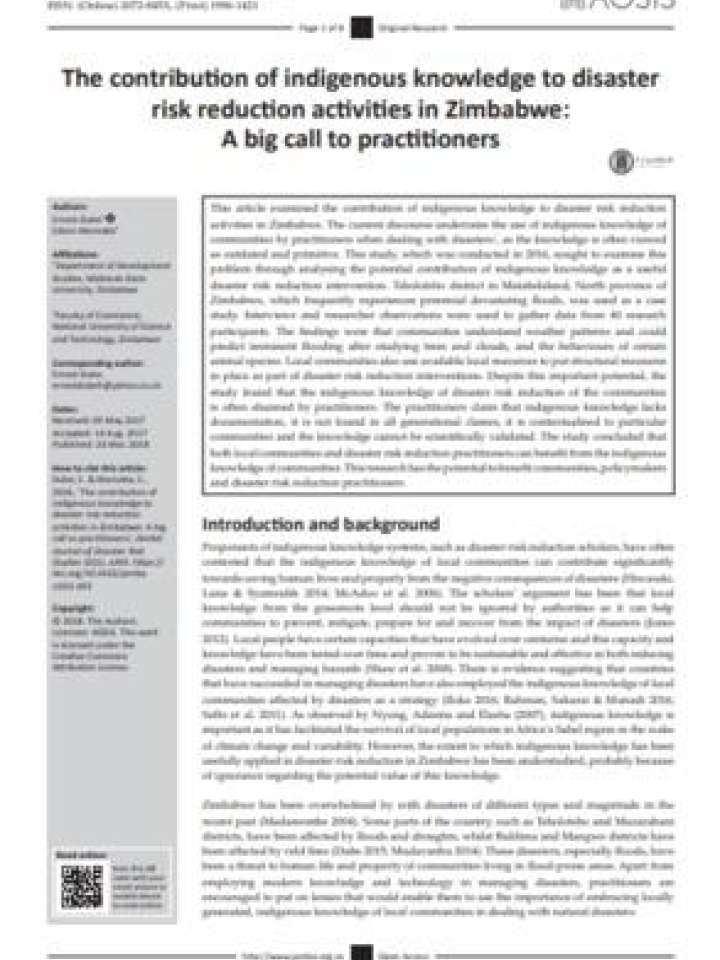The contribution of indigenous knowledge to disaster risk reduction activities in Zimbabwe: A big call to practitioners
This article examines the contribution of indigenous knowledge to disaster risk reduction activities in Zimbabwe. Practitioners tend to undervalue the use of indigenous knowledge when dealing with disasters, as the knowledge is often viewed as outdated and primitive. This study, which was conducted in 2016, seeks to examine this problem through analysing the potential contribution of indigenous knowledge as a useful disaster risk reduction intervention. Tsholotsho district in Zimbabwe's Matabeleland North Province, which frequently experiences perennial devastating floods, is used as a case study. Interviews and researcher observations are used to gather data from 40 research participants.
The study finds that communities understand weather patterns and can predict imminent flooding after studying trees and clouds, and the behaviours of certain animal species. Communities also use available local resources to put structural measures in place as part of disaster risk reduction interventions. Despite this important potential, the study finds that communities' indigenous knowledge is often shunned by practitioners. The practitioners claim that indigenous knowledge lacks documentation, is not found in all generational classes, is contextualised to particular communities and cannot be scientifically validated. The article concludes that both local communities and disaster risk reduction practitioners can benefit from the indigenous knowledge of communities.
Explore further
